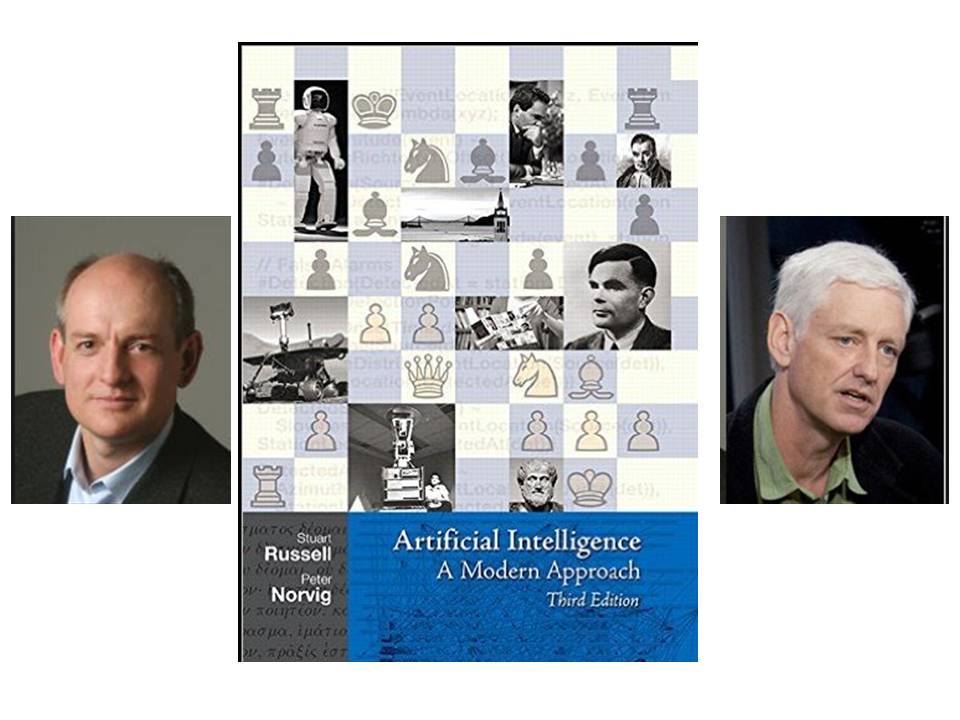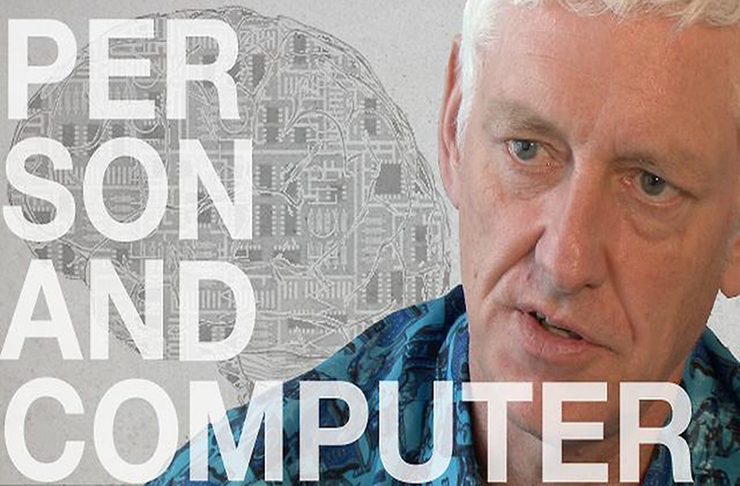Artificial Intelligence: A Modern Approach (AIMA) is a university textbook on artificial intelligence, written by Stuart J. Russell and Peter Norvig.
Artificial Intelligence: A Modern Approach (AIMA) is a university textbook on artificial intelligence, written by Stuart J. Russell and Peter Norvig. The third edition of the book was released 11 December 2009. It is used in over 1100 universities worldwide and has been called “the most popular artificial intelligence textbook in the world”.
The book is intended for an undergraduate audience but can also be used for graduate-level studies with the suggestion of adding some of the primary sources listed in the extensive bibliography.
Artificial Intelligence: A Modern Approach is divided into seven parts with a total of 27 chapters. The authors state that it is a large text which would take two semesters to cover all the chapters and projects.
• Part I: Artificial Intelligence – Sets the stage for the following sections by viewing AI systems as intelligent agents that can decide what actions to take and when to take them.
• Part II: Problem-solving – Focuses on methods for deciding what action to take when needing to think several steps ahead such as playing a game of chess.
•Part III: Knowledge, reasoning, and planning – Discusses ways to represent knowledge about the intelligent agents’ environment and how to reason logically with that knowledge.
• Part IV: Uncertain knowledge and reasoning – This section is analogous to Parts III, but deals with reasoning and decision-making in the presence of uncertainty in the environment.
• Part V: Learning – Describes ways for generating knowledge required by the decision-making components and introduces a new component: the artificial neural network
• Part VI: Communicating, perceiving, and acting – Concentrates on ways an intelligent agent can perceive its environment whether by touch or vision.
• Part VII: Conclusions – Considers the past and future of AI by discussing what AI really is and why it has succeeded to some degree. Also the views of those philosophers who believe that AI can never succeed are given discussion.
Who is Stuart J. Russell?
Stuart J. Russell is a British-American computer scientist and professor. He has made a significant contribution to the field of Artificial Intelligence.
He has authored Do The Right Thing: Studies In Limited Rationality and co-authored Artificial Intelligence: A Modern Approach.
Russell was born in 1962 in Portsmouth, England. He graduated in 1982 with a BA in Physics from Wadham College, Oxford. He went on to earn a PhD in Computer Science from Stanford University. Russell is now a professor of Computer Science at the University of California, Berkeley. He also holds a teaching position and a research position at the University of California, San Francisco. Russell’s work in the fields of artificial intelligence and teaching has won him various honours and awards, including the ACM Karl V. Karlstrom Outstanding Educator Award, and a shared IJCAI Computers and Thought Award.
Who is Peter Norvig?
Peter Norvig is an American computer scientist, teacher, and author.
He has written books such as Intelligent Help Systems for UNIX, Verbmobil: A Translation System for Face-to-Face Dialog, and Paradigms of AI Programming: Case Studies in Common Lisp. He has also co-authored the book Artificial Intelligence: A Modern Approach.
Norvig was born on December 14, 1956. He has a bachelor’s degree in Applied Mathematics from Brown University, and a doctorate in Computer Science from the University of California, Berkeley. Norvig has held key positions at various institutions such as the NASA Ames Research Center, Sun Microsystems Laboratories, and Harlequin Inc





